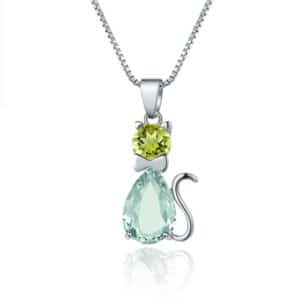Cat Karma Creations: Cats vomiting can be a concerning issue for pet owners. This article will explore the common causes of cat vomiting, effective treatments, and preventive measures to ensure your feline friend stays healthy and happy. By understanding the signs and symptoms, you can take the necessary steps to address and prevent this issue. Whether it’s a one-time occurrence or a recurring problem, this guide will provide you with the information you need to keep your cat in top condition.
Common Causes of Cats Vomiting
Hairballs
Hairballs are a common cause of cats vomiting. When cats groom themselves, they swallow loose fur, which can accumulate in their stomach and form hairballs. These hairballs can irritate the stomach lining and lead to vomiting. Signs of hairballs include coughing, hacking, and retching. To manage hairballs, regular grooming is essential. Brushing your cat daily can help remove loose fur and reduce the formation of hairballs. Additionally, special hairball remedies and high-fiber diets can help move the fur through the digestive system more efficiently. At Cat Karma Creations, we recommend using our Paw Print Charm Bracelet to show your love for your furry friend while keeping them healthy.
Dietary Indiscretion
Cats often vomit due to dietary indiscretion, which occurs when they eat non-food items or foods that don’t agree with their digestive system. Common triggers include table scraps, spoiled food, and plants. Symptoms of dietary indiscretion include vomiting, diarrhea, and lethargy. To prevent this, it’s important to supervise your cat’s feeding and avoid giving them human food. Opt for high-quality, easily digestible cat food and keep potentially harmful items out of reach. At Cat Karma Creations, we understand the importance of a healthy diet for your cat. For unique and stylish cat-themed gifts, visit our website.
Infections
Infections, whether bacterial or viral, can also cause cats to vomit. Common infections include upper respiratory infections, gastrointestinal infections, and urinary tract infections. Symptoms of infections include vomiting, fever, lethargy, and loss of appetite. If you suspect an infection, it’s crucial to seek veterinary care. Treatment may include antibiotics, antiviral medications, and supportive care such as fluid therapy and nutritional support. At Cat Karma Creations, we are committed to the well-being of cats and support cat rescue charities. For more information, contact us at (800) 343-1604 or info@catkarmacreations.com.
Toxins
Toxins are another common cause of cats vomiting. Cats can ingest toxic substances through household chemicals, plants, and certain medications. Symptoms of toxicity include vomiting, tremors, seizures, and difficulty breathing. If you suspect your cat has ingested a toxin, contact your veterinarian immediately. Treatment may involve inducing vomiting, administering activated charcoal to absorb the toxin, and providing supportive care. At Cat Karma Creations, we care about the safety of your pets and recommend keeping harmful substances out of reach. Follow us on Facebook for more tips on pet safety.
Other Health Issues
Several other health issues can cause cats to vomit, including kidney disease, liver disease, and cancer. These conditions can lead to chronic vomiting and other symptoms such as weight loss, lethargy, and changes in appetite. If your cat is vomiting frequently or showing other signs of illness, it’s important to consult a veterinarian for a proper diagnosis and treatment plan. At Cat Karma Creations, we believe in the importance of regular veterinary check-ups to ensure your cat’s health. For more information, visit our website.
Symptoms to Watch For
Vomiting White Foam
Cats vomiting white foam can be a sign of digestive issues or respiratory problems. White foam is often produced when the stomach is empty, and the cat is experiencing irritation or nausea. Common causes include gastritis, acid reflux, and respiratory infections. If your cat is vomiting white foam, it’s important to monitor their behavior and seek veterinary advice if the vomiting persists or is accompanied by other symptoms such as coughing or difficulty breathing. At Cat Karma Creations, we understand the importance of early detection and treatment. For more information, contact us at (800) 343-1604.
Vomiting Blood
Vomiting blood, or hematemesis, is a serious condition that requires immediate veterinary attention. Blood in the vomit can indicate a range of issues, including ulcers, gastrointestinal bleeding, and ingestion of toxic substances. Symptoms may include vomiting, lethargy, and pale gums. If your cat is vomiting blood, it’s crucial to contact your veterinarian as soon as possible. Treatment may involve medications to manage the bleeding, supportive care, and further diagnostic testing to identify the underlying cause. At Cat Karma Creations, we are here to support you and your feline friend. For more information, visit our website.
Vomiting Food
Cats sometimes vomit their food, and it’s important to differentiate between normal regurgitation and a health issue. Regurgitation typically occurs shortly after eating and involves undigested food. If your cat is vomiting undigested food, it could be due to overeating, eating too quickly, or a blockage in the esophagus. To prevent this, feed your cat smaller, more frequent meals and consider using a slow-feed bowl. If the vomiting persists or is accompanied by other symptoms, consult your veterinarian. At Cat Karma Creations, we recommend our Beautiful Handmade Sterling Silver Cat Pendant as a thoughtful gift for cat lovers.
Vomiting Bile
Cats vomiting bile can be a sign of an empty stomach or other health problems. Bile is a yellow-green fluid produced by the liver to aid in digestion. When the stomach is empty, bile can irritate the stomach lining and cause vomiting. Common causes include gastritis, liver disease, and pancreatic issues. To manage this, feed your cat smaller, more frequent meals to keep their stomach full and reduce the production of bile. If the vomiting persists, seek veterinary advice to rule out underlying health issues. At Cat Karma Creations, we care about the health and happiness of your cats. For more information, contact us at (800) 343-1604.
Vomiting Hairballs
Hairballs are a common cause of cats vomiting, as discussed earlier. However, frequent vomiting of hairballs can indicate a more serious issue. If your cat is vomiting hairballs regularly, it’s important to consider the underlying causes, such as poor grooming habits or a diet lacking in fiber. Regular grooming and the use of hairball remedies can help manage this issue. If the problem persists, consult your veterinarian to rule out other health concerns. At Cat Karma Creations, we offer a variety of cat-themed jewelry and gifts to show your love for your furry friend. Visit our website for more information.
Effective Treatments for Cats Vomiting
Dietary Changes
Dietary changes can be an effective way to manage and prevent cats vomiting. For cats with dietary sensitivities, switching to a hypoallergenic or limited-ingredient diet can help reduce the risk of vomiting. If your cat is vomiting due to hairballs, consider a high-fiber diet that promotes digestive health. For cats with chronic vomiting, a bland diet consisting of boiled chicken and rice can provide relief and help soothe the stomach. Always consult with your veterinarian before making any significant dietary changes. At Cat Karma Creations, we understand the importance of a balanced diet for your cat. For unique cat-themed gifts, visit our website.
Medications
Medications can be used to treat the symptoms and underlying causes of cats vomiting. For example, antacids can help manage acid reflux and gastritis, while anti-nausea medications can reduce vomiting. Antibiotics may be prescribed for bacterial infections, and antiviral medications can be used for viral infections. In some cases, anti-inflammatory drugs may be necessary to reduce inflammation and swelling in the digestive tract. Always follow your veterinarian’s advice when administering medications to your cat. At Cat Karma Creations, we are committed to the well-being of cats and support cat rescue charities. For more information, contact us at (800) 343-1604.
Home Remedies
There are several home remedies that can help manage cats vomiting. For example, fasting your cat for 12-24 hours can give their digestive system a chance to rest and recover. After fasting, gradually reintroduce small, bland meals such as boiled chicken and rice. Probiotics can also be beneficial in restoring the balance of gut bacteria and promoting digestive health. Additionally, keeping your cat hydrated with fresh water and providing a quiet, stress-free environment can help reduce vomiting episodes. At Cat Karma Creations, we care about the health and happiness of your cats. For more information, visit our website.
Veterinary Care
If your cat is vomiting frequently or showing other signs of illness, it’s important to seek veterinary care. A veterinarian can perform a thorough examination, run diagnostic tests, and provide a proper diagnosis and treatment plan. Diagnostic tests may include blood work, X-rays, and ultrasounds to identify the underlying cause of vomiting. In some cases, hospitalization and supportive care may be necessary to manage the condition and prevent complications. At Cat Karma Creations, we are here to support you and your feline friend. For more information, contact us at info@catkarmacreations.com.
Preventive Measures
Regular Grooming
Regular grooming can help reduce the formation of hairballs and prevent cats from vomiting them. Brushing your cat daily can remove loose fur and reduce the amount of fur they swallow. Special grooming tools such as slicker brushes and dematting combs can be particularly effective. Additionally, using hairball remedies and supplements can help move the fur through the digestive system more efficiently. At Cat Karma Creations, we recommend our Paw Print Charm Bracelet to show your love for your furry friend while keeping them healthy.
Feeding Schedules
Feeding smaller, more frequent meals can help prevent cats from vomiting undigested food or bile. Overeating and eating too quickly can lead to regurgitation and indigestion. By dividing your cat’s daily food intake into multiple small meals, you can reduce the risk of vomiting. Consider using a slow-feed bowl to slow down your cat’s eating and prevent them from gulping their food too quickly. At Cat Karma Creations, we understand the importance of a healthy diet for your cat. For unique cat-themed gifts, visit our website.
Stress Management
Providing a stress-free environment and a consistent routine can help prevent cats from vomiting due to anxiety or stress. Cats are sensitive to changes in their environment and can become stressed by factors such as new pets, changes in routine, or loud noises. To reduce stress, create a calm and comfortable living space for your cat. Provide hiding spots, scratching posts, and elevated perches to give them a sense of security. Regular playtime and interaction can also help reduce stress and promote mental well-being. At Cat Karma Creations, we care about the health and happiness of your cats. For more information, follow us on Instagram.
High-Quality Cat Food
Using high-quality, easily digestible cat food can reduce the risk of dietary indiscretion and related vomiting. Look for cat food that is formulated to meet your cat’s specific needs, such as age, weight, and activity level. Avoid feeding your cat table scraps or foods that can cause digestive issues. If your cat has a history of vomiting, consider a hypoallergenic or limited-ingredient diet to reduce the risk of allergic reactions and food sensitivities. At Cat Karma Creations, we understand the importance of a balanced diet for your cat. For unique cat-themed gifts, visit our website.
Regular Vet Check-Ups
Regular veterinary check-ups can help catch and treat health issues early, preventing chronic vomiting in cats. During a check-up, your veterinarian can perform a physical examination, run diagnostic tests, and provide recommendations for maintaining your cat’s health. Early detection and treatment of health issues can improve your cat’s quality of life and reduce the risk of complications. Schedule regular check-ups and follow your veterinarian’s advice to keep your cat healthy and happy. At Cat Karma Creations, we are committed to the well-being of cats and support cat rescue charities. For more information, contact us at (800) 343-1604.
Popular Quote
“A cat has absolute emotional honesty; human beings, for one reason or another, may hide their feelings, but a cat does not.” – Ernest Hemingway
Statistical Fact
According to the American Veterinary Medical Association (AVMA), approximately 50% of cats will experience vomiting at least once a year. This statistic underscores the importance of understanding the common causes and effective treatments for cat vomiting. For more information and resources, visit the AVMA website.
Three Tips for Managing Cats Vomiting
- Regular Grooming: Brush your cat daily to reduce the formation of hairballs and prevent them from vomiting. Use a slicker brush or dematting comb for best results.
- Feeding Smaller, More Frequent Meals: Divide your cat’s daily food intake into multiple small meals to prevent overeating and indigestion. Consider using a slow-feed bowl to slow down their eating.
- Stress Management: Create a calm and stress-free environment for your cat. Provide hiding spots, scratching posts, and elevated perches to give them a sense of security. Regular playtime and interaction can also help reduce stress.
Popular Questions
What are the most common causes of cats vomiting?
The most common causes of cats vomiting include hairballs, dietary indiscretion, infections, toxins, and other health issues such as kidney disease, liver disease, and cancer. Understanding these causes can help you take preventive measures and seek appropriate treatment.
How can I prevent my cat from vomiting hairballs?
To prevent your cat from vomiting hairballs, regular grooming is essential. Brush your cat daily to remove loose fur and reduce the formation of hairballs. Additionally, use hairball remedies and supplements to help move the fur through the digestive system more efficiently.
When should I take my cat to the vet for vomiting?
If your cat is vomiting frequently or showing other signs of illness such as lethargy, loss of appetite, or changes in behavior, it’s important to take them to the vet. Frequent vomiting can be a sign of a more serious health issue, and early diagnosis and treatment can improve their quality of life.
What are some home remedies for cats vomiting?
Some home remedies for cats vomiting include fasting your cat for 12-24 hours to give their digestive system a chance to rest, gradually reintroducing small, bland meals such as boiled chicken and rice, and using probiotics to restore the balance of gut bacteria. Keeping your cat hydrated and providing a stress-free environment can also help reduce vomiting episodes.
How can I manage my cat’s stress to prevent vomiting?
Managing your cat’s stress can help prevent vomiting. Create a calm and stress-free environment by providing hiding spots, scratching posts, and elevated perches. Regular playtime and interaction can also help reduce stress and promote mental well-being. Consistency in routine and a quiet, comfortable living space are key to keeping your cat happy and healthy.
Final Thoughts About Cats Vomiting
Cat Karma Creations: Cats vomiting can be a sign of various health issues, but with the right knowledge and care, you can help your feline friend stay healthy. By identifying the causes, treating symptoms, and implementing preventive measures, you can ensure your cat leads a happy and comfortable life. If you have any concerns, don’t hesitate to contact your veterinarian for professional advice. Visit our website to find excellent gifts for cat lovers and follow us on social media for more tips and updates. For more information, contact us at (800) 343-1604 or info@catkarmacreations.com.
| Feature | Hairballs | Dietary Indiscretion | Infections | Toxins |
|---|---|---|---|---|
| Common Symptoms | Vomiting, coughing, hacking | Vomiting, diarrhea, lethargy | Vomiting, fever, lethargy | Vomiting, tremors, seizures |
| Causes | Swallowed fur | Eating non-food items | Bacterial or viral infections | Ingestion of toxic substances |
| Treatment | Laxatives, hairball remedies | Dietary changes, medications | Antibiotics, supportive care | Induced vomiting, activated charcoal |
| Prevention | Regular grooming, special diets | Supervised feeding, avoiding table scraps | Vaccinations, hygiene | Pet-proofing home, avoiding toxic plants |
- Regular grooming can help reduce the formation of hairballs and prevent cats from vomiting them.
- Feeding smaller, more frequent meals can help prevent cats from vomiting undigested food or bile.
- Identifying and addressing underlying health issues, such as infections or dietary sensitivities, can reduce the frequency of cat vomiting.
- Providing a stress-free environment and a consistent routine can help prevent cats from vomiting due to anxiety or stress.
- Using high-quality, easily digestible cat food can reduce the risk of dietary indiscretion and related vomiting.
- Regular veterinary check-ups can help catch and treat health issues early, preventing chronic vomiting in cats.















